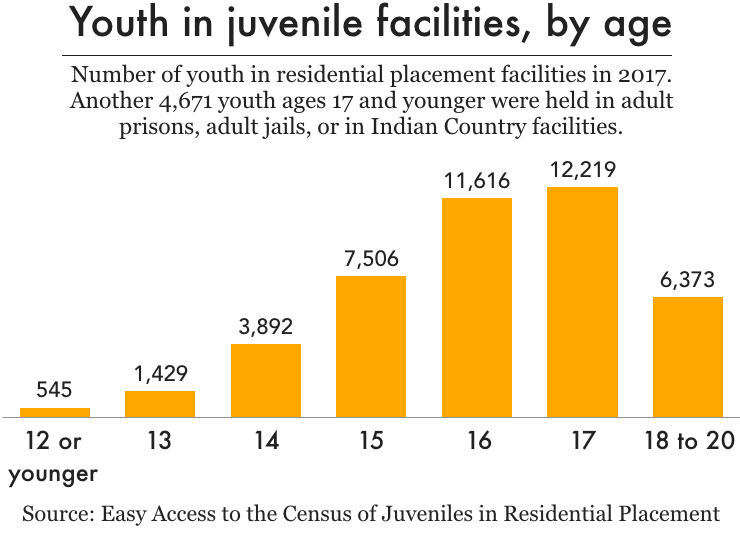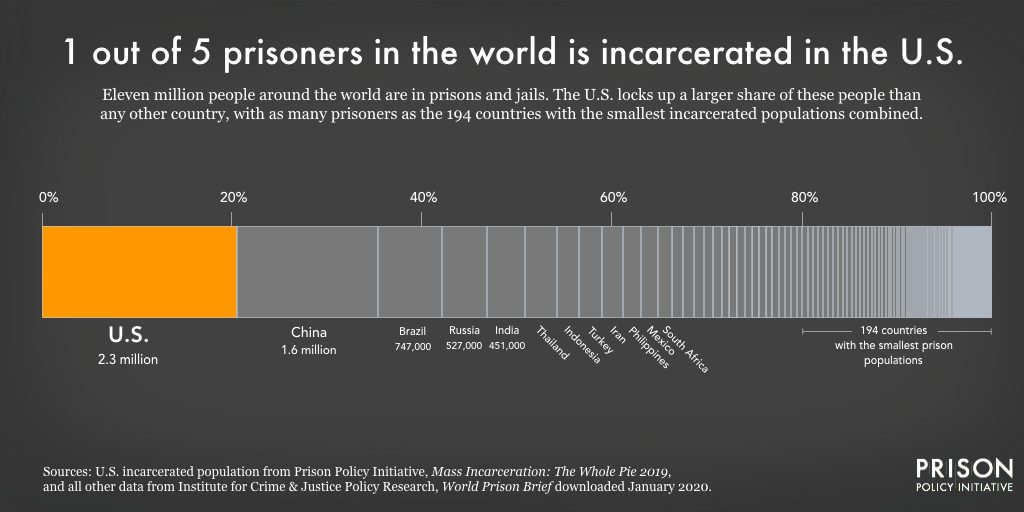“What percent of the U.S. is incarcerated?” (And other ways to measure mass incarceration)
Nearly one out of every 100 people in the United States is in a prison or jail.
by Peter Wagner and Wanda Bertram, January 16, 2020
We’re often asked what percent of the U.S. population is behind bars. The answer: About 0.7% of the United States is currently in a federal or state prison or local jail. If this number seems unworthy of the term “mass incarceration,” consider that 0.7% is just shy of 1%, or one out of a hundred. And a little more context shows that this fraction is actually incredibly high.
Because talking about portions of a percentage can be confusing, this concept is more often expressed as a rate: The United States currently incarcerates 698 per 100,000 people. (The rate is out of 100,000, rather than 1,000 or 10,000, because back when incarceration was much rarer you needed a larger denominator to express the rate in whole numbers. But either way, these are all different ways of expressing the same percentage.)
In some ways, though, looking at the portion of a country that is incarcerated understates the sheer size of mass incarceration, because the denominator includes many groups that are infrequently incarcerated. For example, no toddlers, few adolescents, and not very many teenagers are incarcerated.

Rather than calculating how many people in the U.S. are incarcerated, you could calculate how many adults are incarcerated (0.88%), or how many working-age adults are incarcerated (1.07%). These statistics are rhetorically useful, but are often difficult to pair with compatible data from other countries, states or topics, so they’re not used very often.
There is another way to look at the scale and uniqueness of the U.S mass incarceration experiment: Less than 5% of the world’s population is in the United States, but 20% of the world’s incarcerated people are right here:

For more perspectives on the scale of mass incarceration, see:
- Our report Mass Incarceration: The Whole Pie, which breaks down how many people are locked up in the United States, where, and why
- Our related reports looking specifically at how women and youth are locked up and why: Women’s Mass Incarceration: The Whole Pie and Youth Confinement: The Whole Pie
- States of Incarceration: The Global Context, our report showing that all U.S. states have incarceration rates higher than most independent countries
- Our state profiles pages with data about mass incarceration in your state
As of August 2021, the newest available data on incarceration in both the U.S. and globally does not change any of the statistics or percentages referenced in this article.



